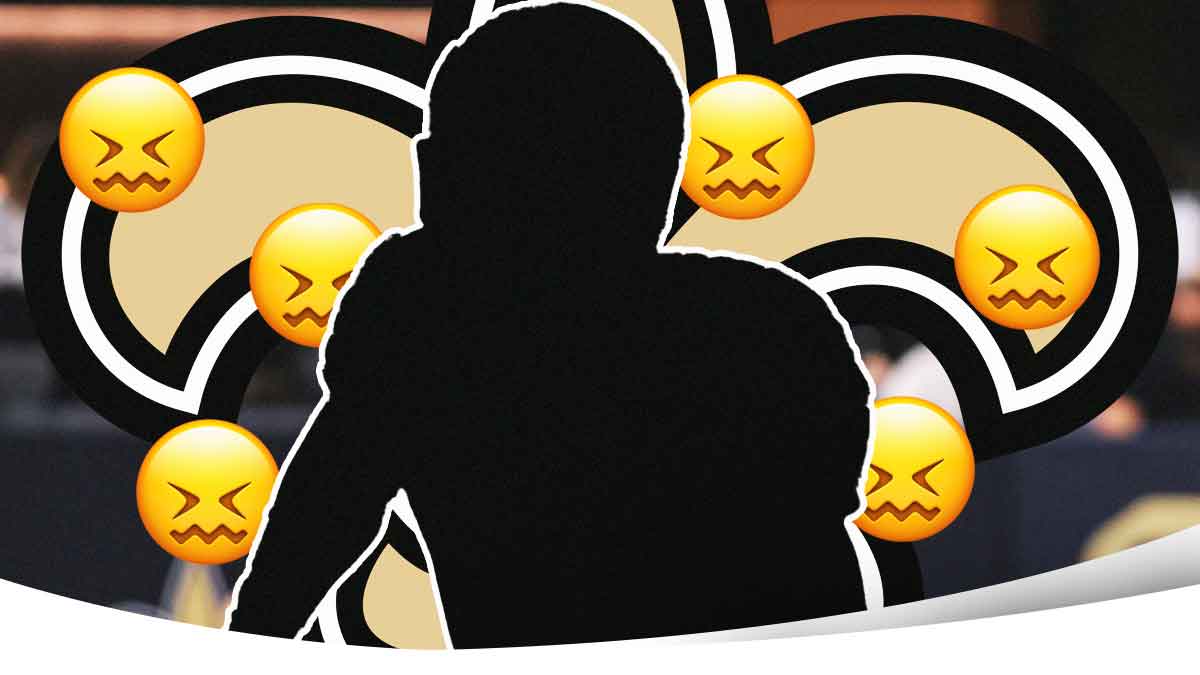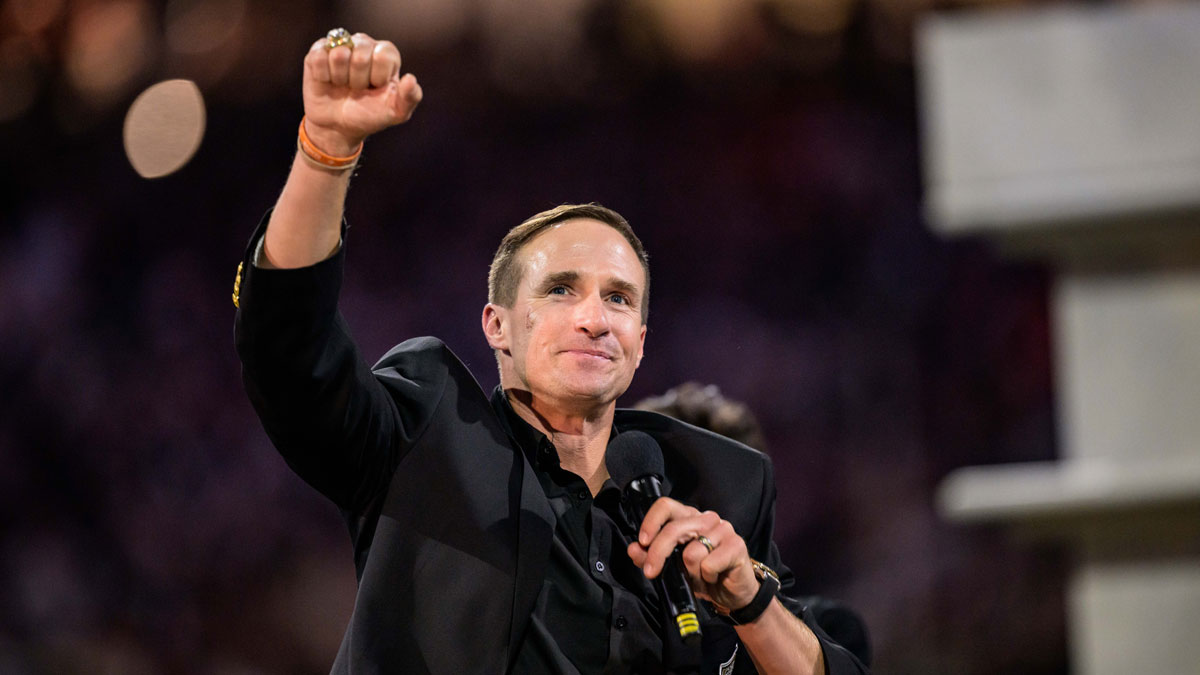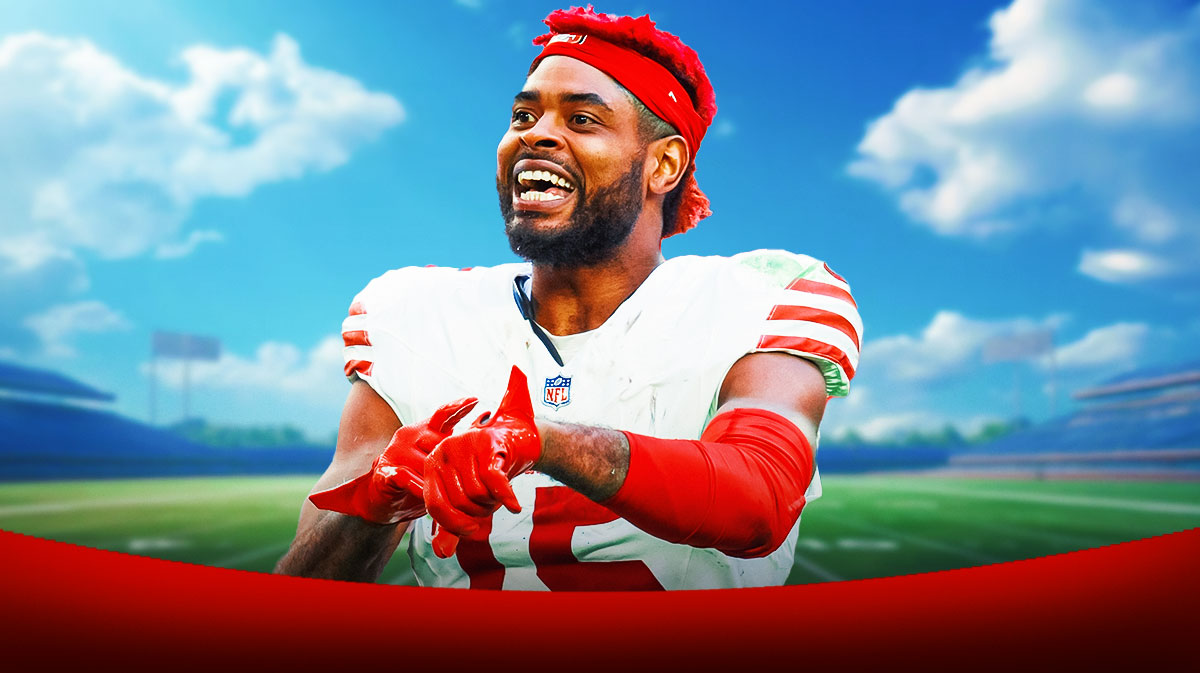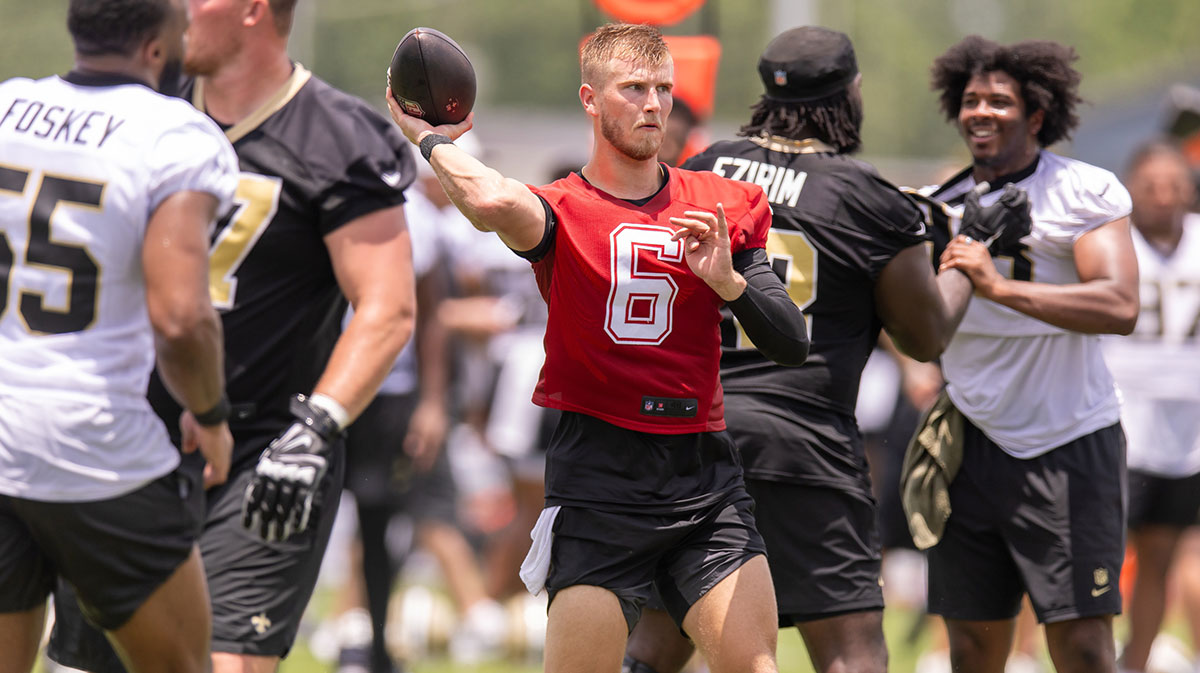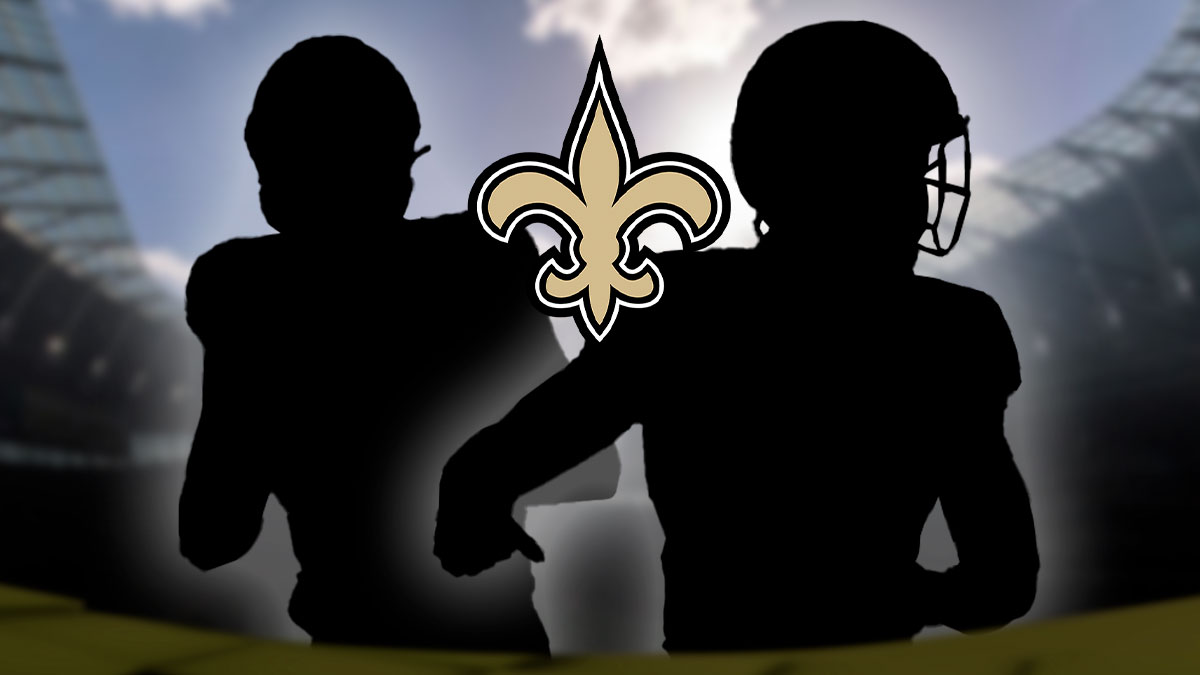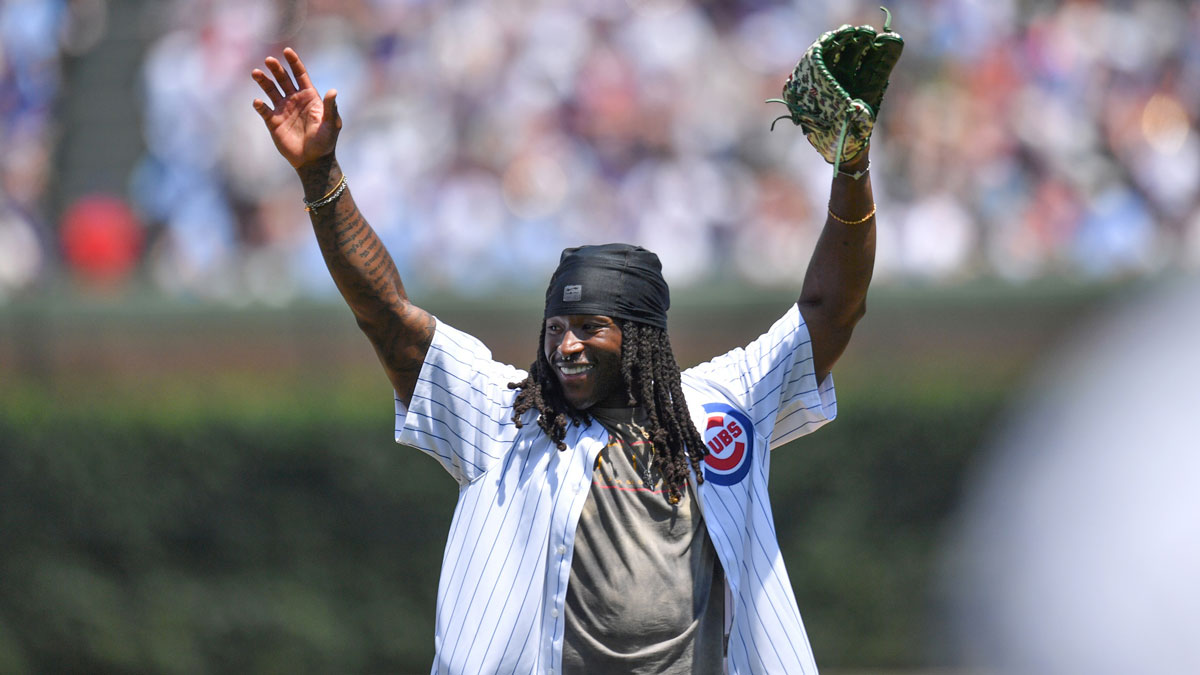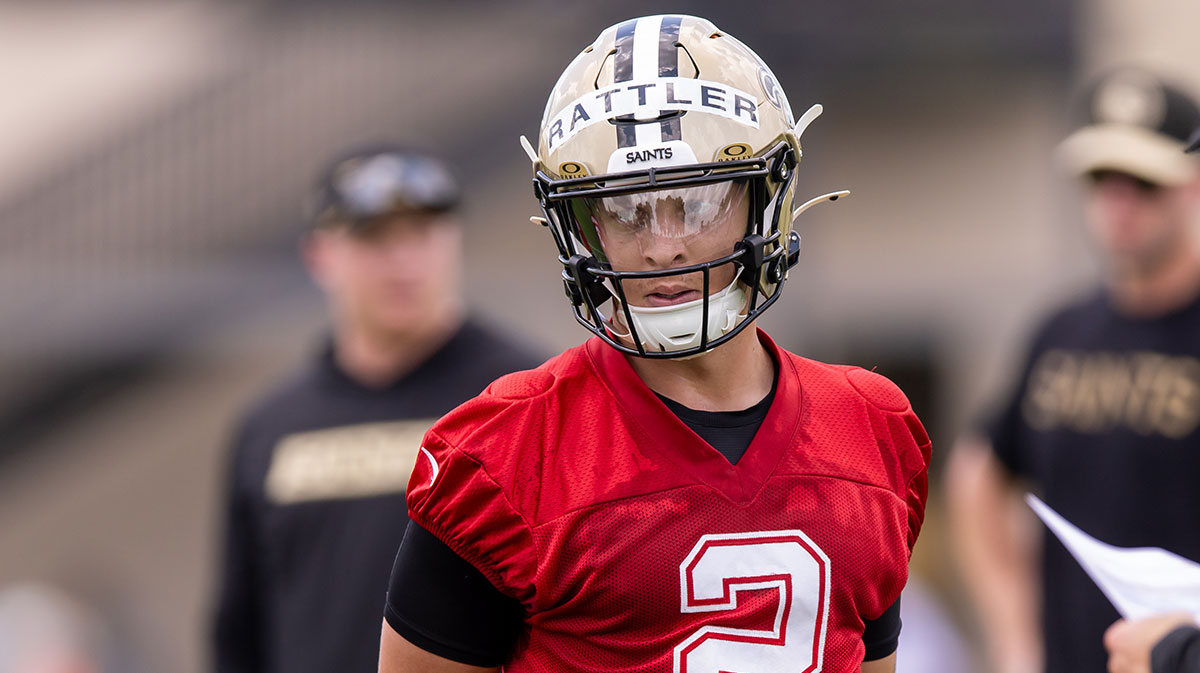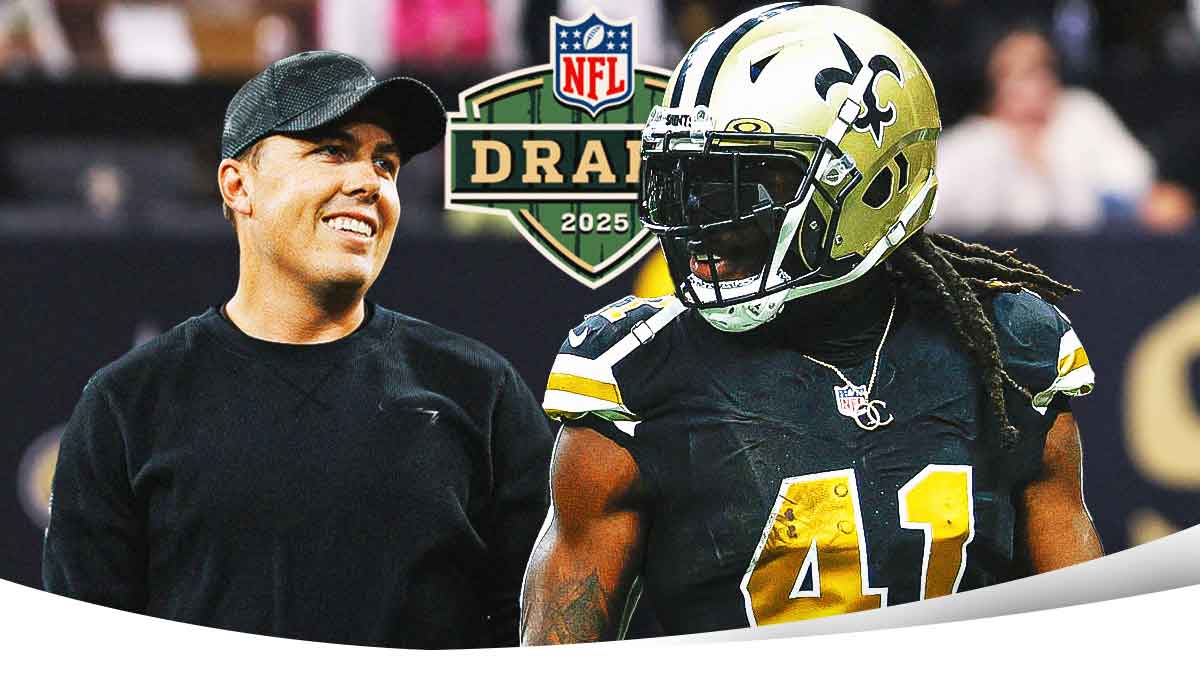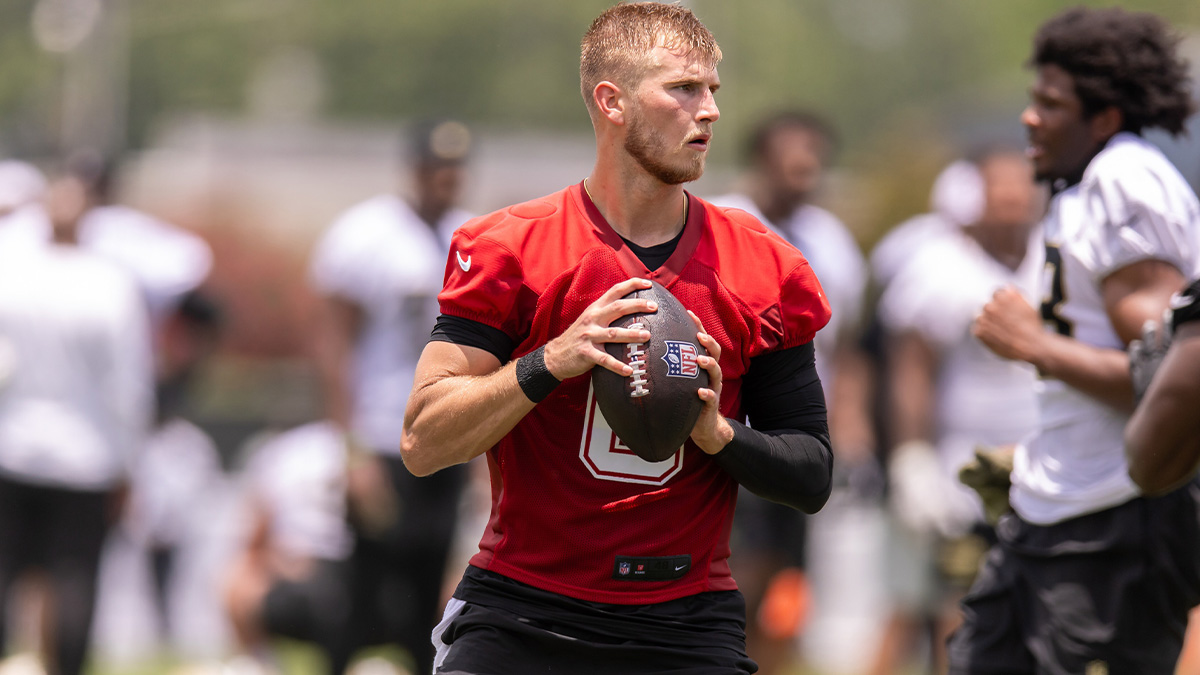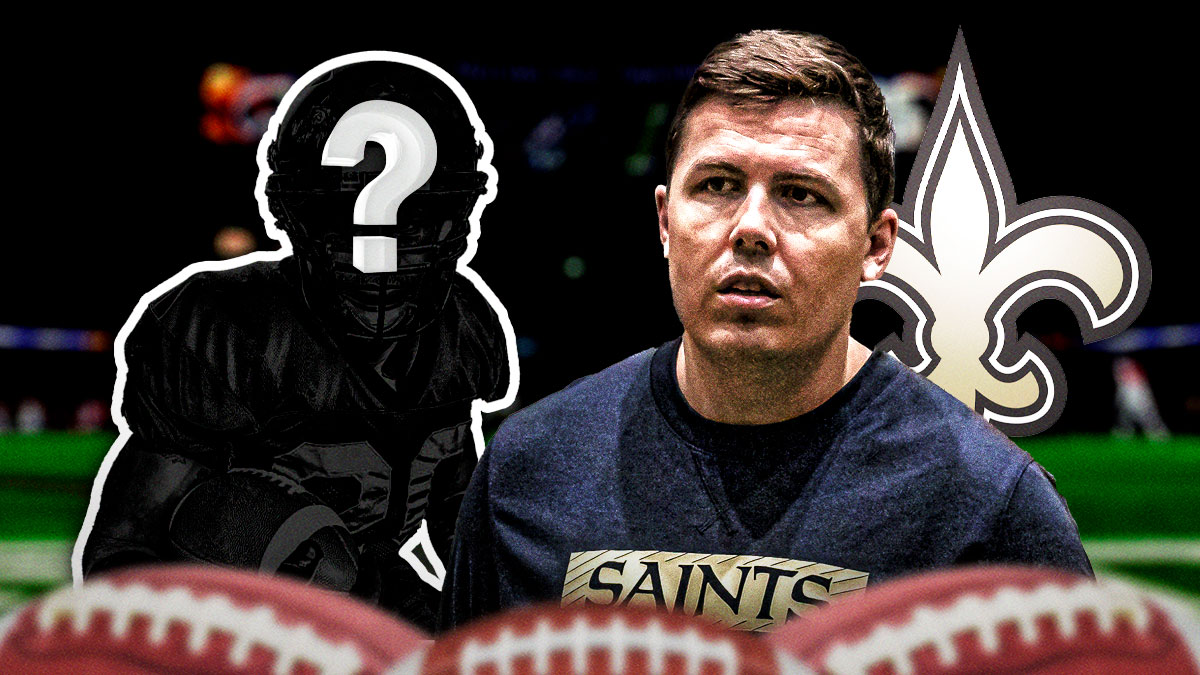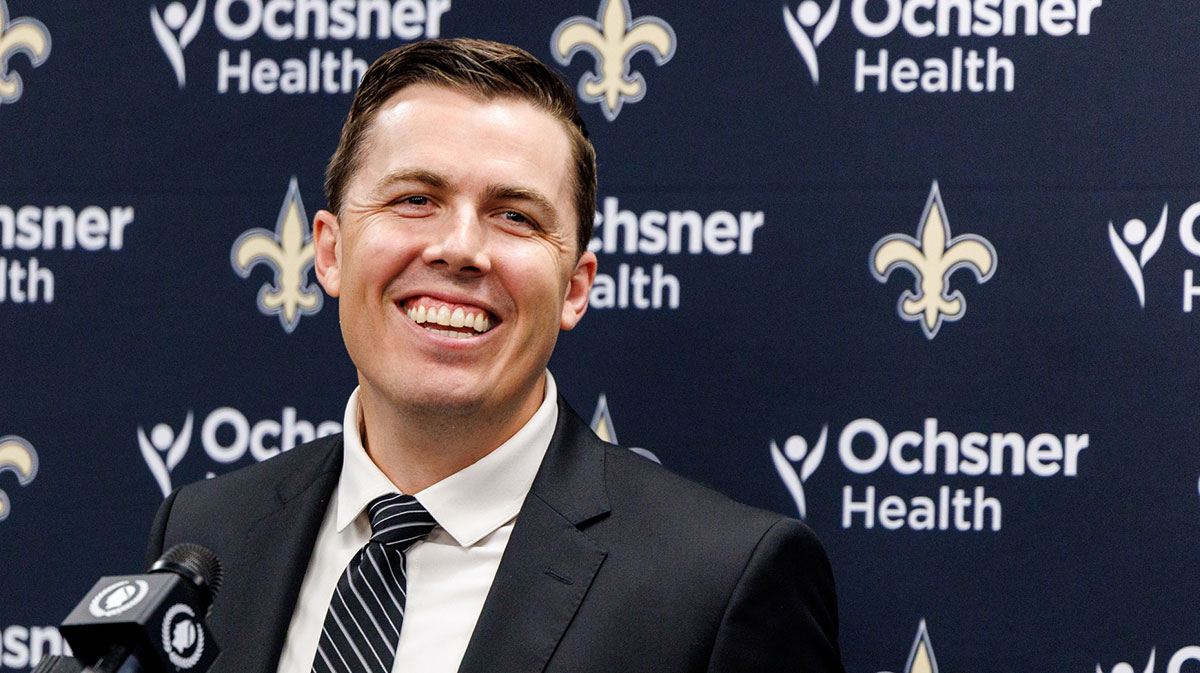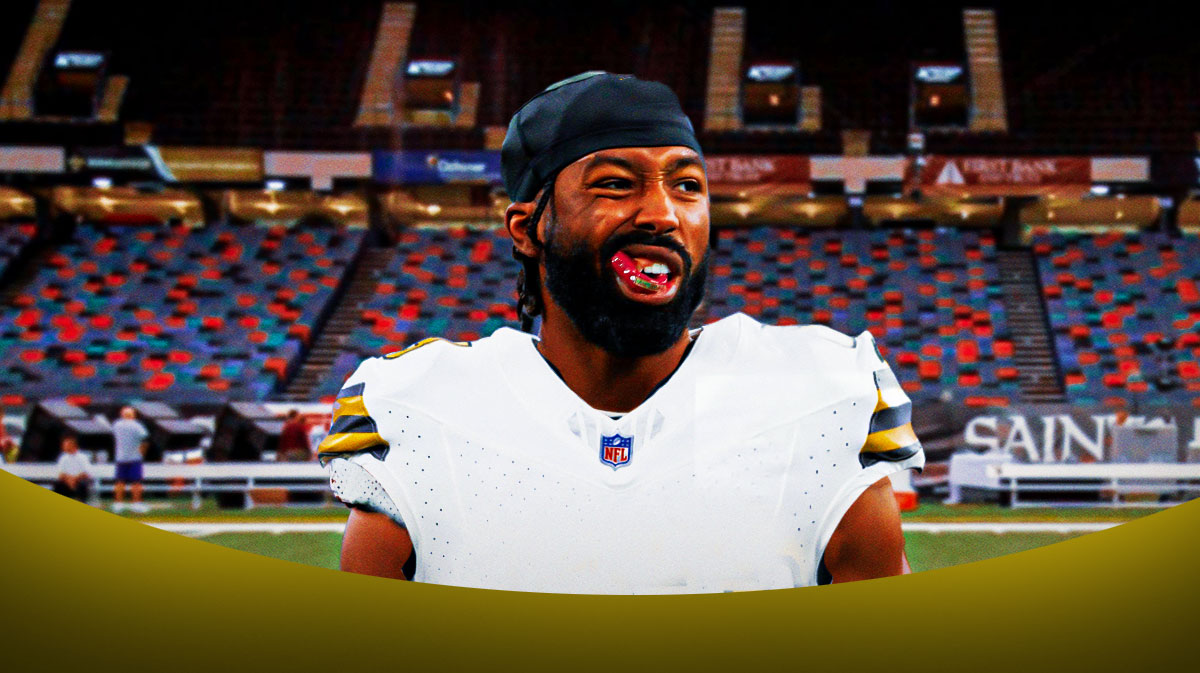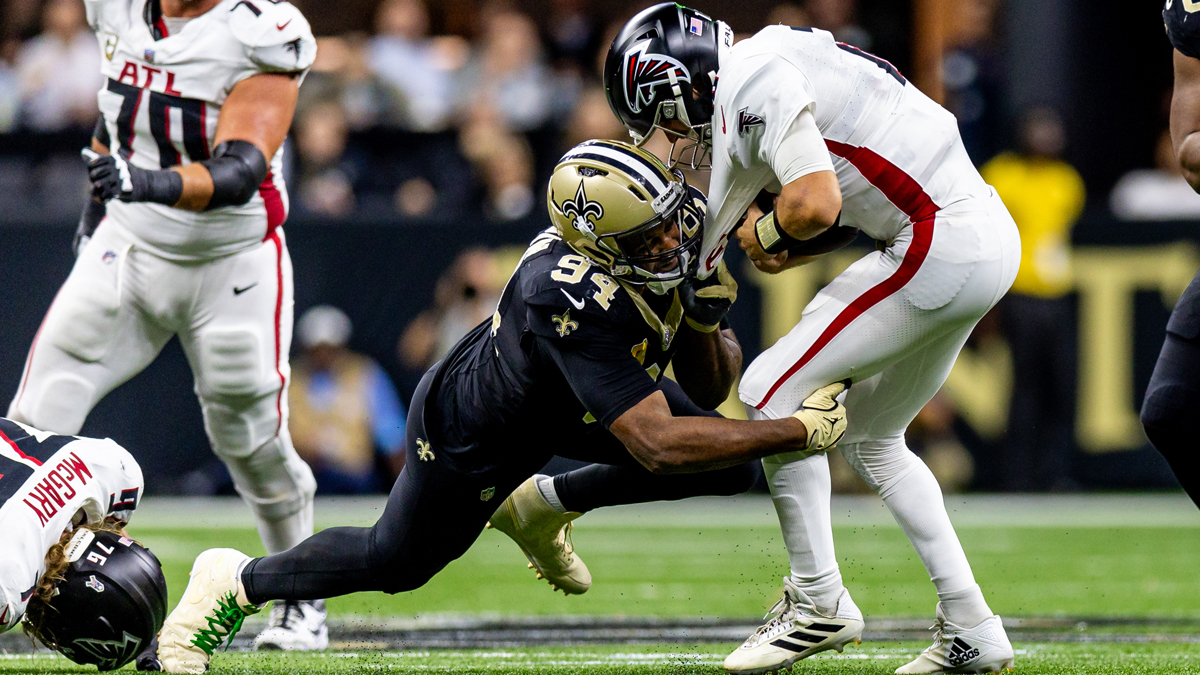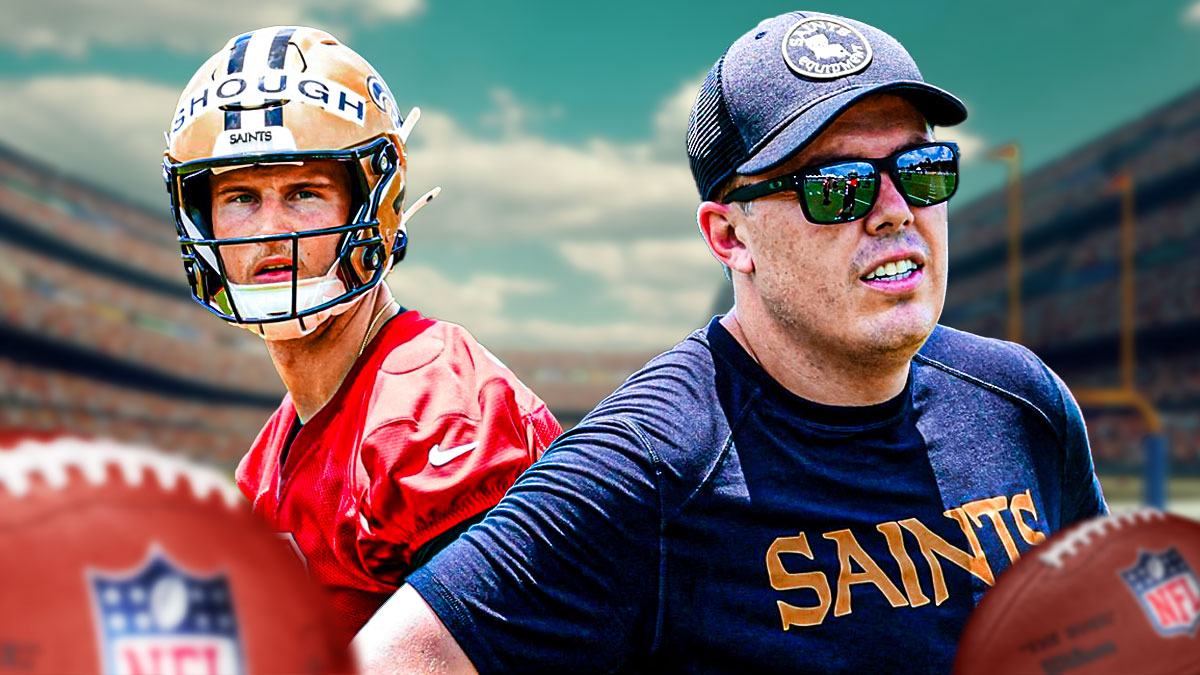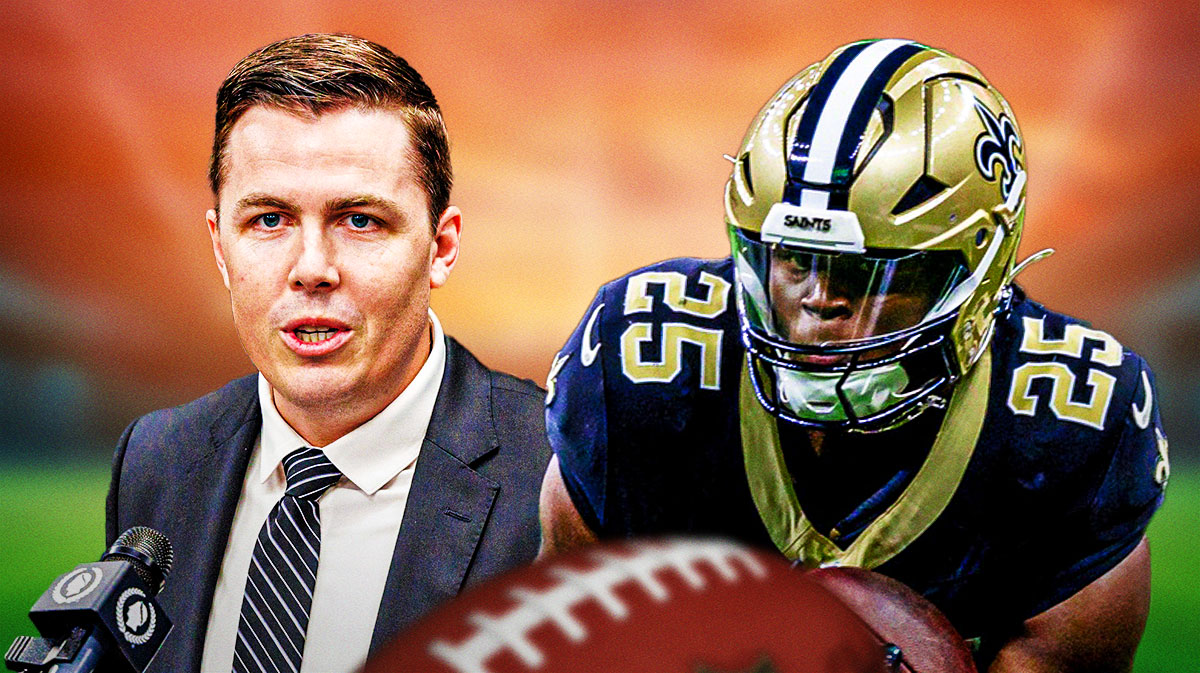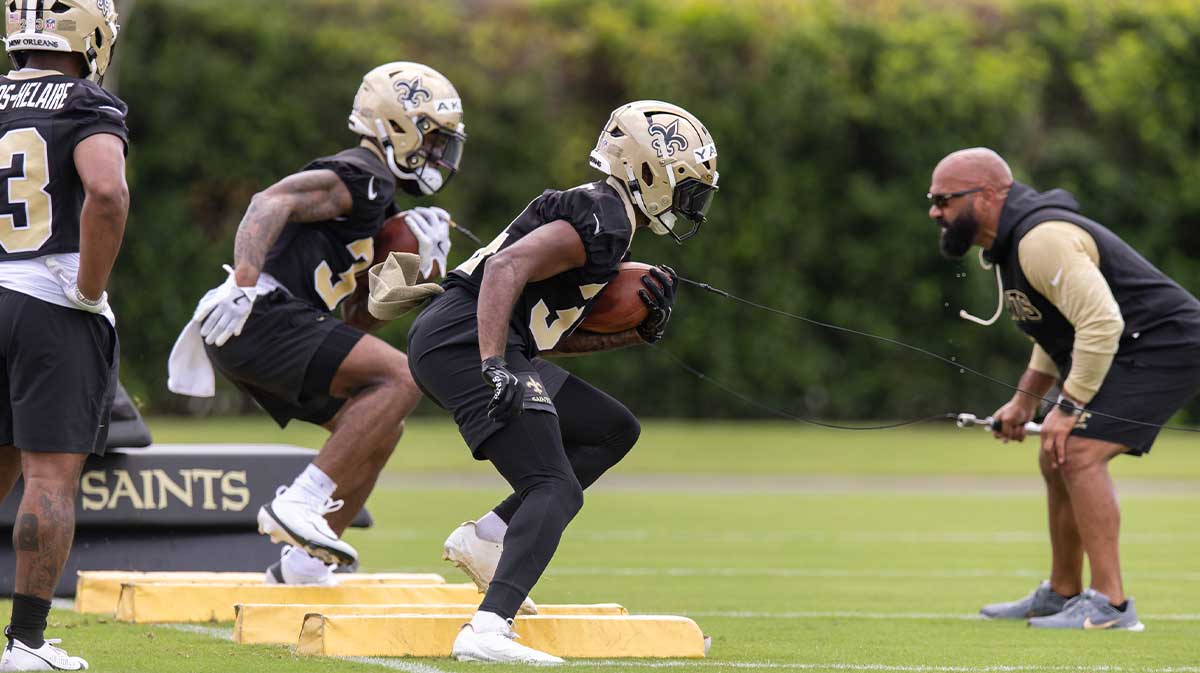So, did the New Orleans Saints make the grade in the 2021 NFL Draft? Certainly, early bumps in some hopes proved tough, but later rounds (and some trading up) wound up being fruitful for the front office — allowing for depth at some key positions heading into the next campaign.
Saints Picks:
Payton Turner, Defensive End, Houston (1st round, No. 28)
Grade: C+
Prior to the 2021 NFL Draft, multiple reports indicated the Saints' front office was adamant on trading up in the first round — likely to select a top-tier cornerback to help assuage the cap casualty of Janoris Jenkins. Charles Robinson of Yahoo! Sports, in fact, indicated NO had hopes of moving above No. 22, following intel that the Tennessee Titans were going to selected Virginia Tech defensive back Caleb Farley — whom the Saints coveted.
If defensive back was, indeed, New Orleans' top target in the opening round, there were four taken prior to 28th overall: South Carolina's Jaycee Horn at No. 8 to the Carolina Panthers, Alabama's Patrick Surtain II at No. 9 to the Denver Broncos, Farley at No. 22 to the Titans (hey, the Saints were right!) and Northwestern's Greg Newsome II at No. 26 to the Cleveland Browns.
To be fair, those were consistently the four top-graded defensive backs of the 2021 draft class, so when the Saints couldn't swing a deal to snag one of them, pick No. 28 became best available based on need. The next wave of defensive backs — Florida State's Asante Samuel Jr., Washington's Elijah Molden, Georgia's Eric Stokes, Kentucky's Kelvin Joseph, Georgia's Tyson Campbell and Syracuse's Ifeatu Melifonwu — were graded as second rounders, and New Orleans took Houston senior defensive end Payton Turner.
The concern here isn't that Turner won't fit or produce right away. He's long, quick, athletic and produced five sacks and 10 1/2 tackles-for-loss in just five games for the Cougars last season. Losing surprising star and edge rusher Trey Hendrickson to the Cincinnati Bengals this offseason only means more snaps for anyone willing to attack a quarterback, and that could very well be Turner this next year and beyond.
The concern here is, couldn't the Saints have gotten Turner later in the draft? NFL.com rated him as a second-round talent, while The Athletic's Dane Brugler rated him as the ninth-best defensive end in the draft pool, likely available in the late-second, early-third rounds.
This is a great selection for need, but a tough selection regarding the timing.
Pete Werner, Linebacker, Ohio State (2nd round draft pick, No. 28 (60th overall))
Grade: B-minus
Linebacker depth is never a bad thing in the NFL, and Werner isn't a bad option here. He's the eighth Ohio State player taken by the Saints since Mickey Loomis took over in 2003, and his health was never an issue for the Buckeyes during his four-year career.
In 2020, he was named First Team All-Big Ten with 54 tackles, 1 1/2 tackles-for-loss, two forced fumbles and one pass deflection, and for his career, he notched 185 tackles, 15 tackles-for-loss, four sacks, four forced fumbles and 11 pass deflections.
Oddly enough, he never came away with an interception through 47 college games (and 35 starts), and his pass coverage skills at this stage come as one of his needed areas of improvement. He's also going to have a lot of camp competition, with All-Pro Demario Davis and growing talent Zack Baun (2020, third-round draftee) likely to get a ton of snaps in 2021.
And if the Saints were so hellbent on grabbing a strong corner early in the draft, UCF's Aaron Robinson was still there at No. 60. He'd go 11 picks later (71st overall, third round) to the New York Giants.
Paulson Adebo, Cornerback, Stanford (3rd round draft pick, No. 12 (76th overall))
Grade: B
New Orleans finally got its trade-up wishes granted with this selection, when they moved up 22 spots with the Denver Broncos to select Stanford cornerback Paulson Adebo with the No. 76 overall pick.
The 6-foot-1, 198-pound defensive back had one hell of career for the Cardinal, too, amassing eight interceptions and 38 pass deflections between the 2018 and 2019 campaigns before opting out of the 2020 season due to COVID-19 concerns.
A late 2019 injury, as well as a lack of tape in 2020, probably led to him sliding a little down the draft board this year, but the starting corner position opposite of Marshon Lattimore is certainly open for business. Adebo (pronounced Ah-DEE-boh) could be in the mix for critical snaps as a man-press coverage guy with strong, physical tools.
Ian Book, Quarterback, Notre Dame (4th round draft pick, No. 28 (133rd overall))
Grade: B
The New Orleans Saints already have two quarterbacks on the roster vying for the spot in utilityman Taysom Hill and former Tampa Bay Buccaneers star Jameis Winston (as well as journeyman Trevor Siemian), and it's likely that some combination of Hill/Winston will see most of the snaps this season — and perhaps in perpetuity.
That being said, the retirement of Drew Brees means open auditions for the next Superdome gunslinger, and what better way to fortify the quarterback room than with Notre Dame's all-time winningest quarterback, Ian Book?
Book was graded as a fifth/sixth rounder by most scouting services, but he came highly recommended by Brees himself — perhaps because they're comparable in size and arm strength. Listed as the draft's shortest quarterback this year at 6-foot even, he's already posted a 4.60 40-yard dash who passed for more than 8,900 yards, rushed for more than 1,500 yards and completed 63.8% of his passes in his college career. His ability to extend plays could make him an interesting piece in a Sean Payton offense, but at worst, he can provide depth at the position while the Saints sort out where guys like Hill and Winston fit.
Landon Young, Offensive Tackle, Kentucky (6th round draft pick, No. 22 (206th overall)
Grade: B+
For a second time in the draft, New Orleans flipped two lesser picks to move up for a better selection — taking Kentucky's Landon Young 206th overall in the sixth round.
At 6-foot-7, 321 pounds, durability shouldn't be an issue with the Bluegrass native, as he started 24 consecutive games to end his college career — one that saw Kentucky's “Big Blue Wall” finish 2019 and 2020 as one of the country's top offensive lines.
Named to the All-SEC First Team in 2020, Young has faced some of the best pass rushing in the NCAA while in the SEC, while the Wildcats have been a top-40 rushing team in the FBS over these last two seasons.
New Orleans already possesses a strong offensive line with guys like Terron Armstead, Ryan Ramczyk and Andrus Peat in the fold. But Young is someone who can soak up snaps and help plug gaps when needed, while learning the speed of the NFL behind some of the better veterans in the league.
Kawaan Baker, Wide Receiver, South Alabama (7th round draft pick, No. 28 (255th overall))
Grade: B
New Orleans made one of the best seventh-round selections in history back in 2006, when they selected Hofstra's Marques Colston with the No. 252 overall pick.
Colston went on to finish with 9,759 yards, 771 catches and and 72 touchdowns in a brilliant 10-year career — all with the Saints.
Is Kawaan Baker, South Alabama's star wideout, the next Colston? It's certainly not a fair comparison, but this does seem to be another place New Orleans officials found value late in this draft. Baker is listed at wide receiver, but has some considerable experience out of the backfield, after adding 251 yards rushing and nine rushing touchdowns to his 33 catches and 494 yards receiving in 2018.
He had a career-best 51 catches, 659 yards and eight receiving touchdowns in 2020, and though he certainly projects below Michael Thomas, Marquez Callaway, Juwan Johnson and Lil'Jordan Humphrey coming into summer workouts, Sean Payton loves multi-tool guys who can work outside, inside and behind the line of scrimmage (see: Alvin Kamara).
He also finished his high school career as an 11-second, 100-meter track star with no stars in his recruitment, and posted a 4.43 40-yard dash on his Pro Day.
The potential here: low risk, high reward…as the Saints continue to navigate what the offense will look like in the post-Brees era.

